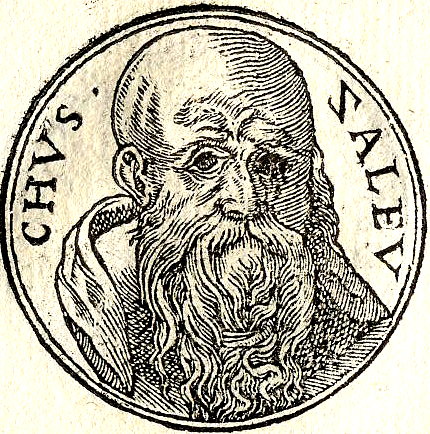Zaleucus on:
[Wikipedia]
[Google]
[Amazon]
 Zaleucus (; fl. 7th century BC) was the
Zaleucus (; fl. 7th century BC) was the
/ref> in
 Zaleucus (; fl. 7th century BC) was the
Zaleucus (; fl. 7th century BC) was the Greek
Greek may refer to:
Anything of, from, or related to Greece, a country in Southern Europe:
*Greeks, an ethnic group
*Greek language, a branch of the Indo-European language family
**Proto-Greek language, the assumed last common ancestor of all kno ...
lawgiver of Epizephyrian Locris
Epizephyrian Locris, also known as Locri Epizephyrii or simply Locri (), was an ancient city on the Ionian Sea, founded by Greeks coming from Locris at the beginning of the 7th century BC. It is now in an archaeological park near the modern town ...
,Suda Encyclopedia, § zeta.12/ref> in
Magna Graecia
Magna Graecia refers to the Greek-speaking areas of southern Italy, encompassing the modern Regions of Italy, Italian regions of Calabria, Apulia, Basilicata, Campania, and Sicily. These regions were Greek colonisation, extensively settled by G ...
. According to the Suda
The ''Suda'' or ''Souda'' (; ; ) is a large 10th-century Byzantine Empire, Byzantine encyclopedia of the History of the Mediterranean region, ancient Mediterranean world, formerly attributed to an author called Soudas () or Souidas (). It is an ...
, he was previously a slave and a shepherd
A shepherd is a person who tends, herds, feeds, or guards flocks of sheep. Shepherding is one of the world's oldest occupations; it exists in many parts of the globe, and it is an important part of Pastoralism, pastoralist animal husbandry. ...
, and after having been educated he gave laws to his fellow-citizens. Some sources make him a Pythagorean philosopher, although older ones put him as older than Pythagoras or even deny his existence altogether. They also attribute divine origin to his laws.
Most probably, he devised the first written European law code, the Locrian code, in the 7th century BC. The code, however, is lost except for some later mentions and imitations which seem clearly anachronistic. These, which among other things mention that:
It also banned the drinking of undiluted wine
Wine is an alcoholic drink made from Fermentation in winemaking, fermented fruit. Yeast in winemaking, Yeast consumes the sugar in the fruit and converts it to ethanol and carbon dioxide, releasing heat in the process. Wine is most often made f ...
except for medical purposes.
Although the Locrian code distinctly favored the aristocracy, Zaleucus was famous for his conciliation of societal factions. No other facts of his life at all are certain. According to legends, he punished adultery
Adultery is extramarital sex that is considered objectionable on social, religious, moral, or legal grounds. Although the sexual activities that constitute adultery vary, as well as the social, religious, and legal consequences, the concept ...
with the forfeiture of sight. When his own son was condemned of this, he refused to exonerate him, instead submitting to the loss of one of his own eyes instead of exacting the full penalty of the culprit. Another law that he established forbade anyone from entering the Senate House armed. Faced with an emergency, he did so anyway, but when he was reminded of the law, he immediately fell upon his sword
A sword is an edged and bladed weapons, edged, bladed weapon intended for manual cutting or thrusting. Its blade, longer than a knife or dagger, is attached to a hilt and can be straight or curved. A thrusting sword tends to have a straighter ...
as a sacrifice to the sovereignty of the claims of social order. A similar story is told of Charondas.
Anyone who proposed a new law, or the alteration of one already existing, had to appear before the Citizen's Council with a rope round his neck. If the Council voted against the proposal the proposer was immediately strangled.
Demosthenes Demosthenes (; ; ; 384 – 12 October 322 BC) was a Greek statesman and orator in ancient Athens. His orations constitute a significant expression of contemporary Athenian intellectual prowess and provide insight into the politics and cu ...(in " Against Timocrates"), who to persuade the Athenians not to change any law upon small and frivolous pretences, gives the example of these Locrians, ''with whom'', says he, ''it's a law, that a man who shall propose to make any new law shall do it with a rope about his neck, which he shall be strangled in, if he do not carry his point: which has been such a guard and defence to the laws, that there has been but one new one made in'' MORE THAN TWO HUNDRED YEARS. (Demost. in Timocr. p. 469.) Now. that Demosthenes here speaks of Zaleucus's laws is plain enough from his naming the Locrians; but it appears further from the law itself. For Hierocles and Polybius's author say expressly, ''that this law about the rope was'' Zaleucus's; ( Hieroc. apud Stobaeum, Serm. 37. Polyb. xii, p. 661.) Image of p.381 a
Google Books
/ref>
References
Bibliography
*Aristotle
Aristotle (; 384–322 BC) was an Ancient Greek philosophy, Ancient Greek philosopher and polymath. His writings cover a broad range of subjects spanning the natural sciences, philosophy, linguistics, economics, politics, psychology, a ...
, ''Politics''
* Diodorus Siculus
Diodorus Siculus or Diodorus of Sicily (; 1st century BC) was an ancient Greece, ancient Greek historian from Sicily. He is known for writing the monumental Universal history (genre), universal history ''Bibliotheca historica'', in forty ...
* Charondas
* Citations
External links
* {{Authority control Ancient Greek law 7th-century BC Greek people Epizephyrian Locrians Pythagoreans of Magna Graecia Ancient legislators Ancient Greek slaves and freedmen Shepherds Legendary Greek people